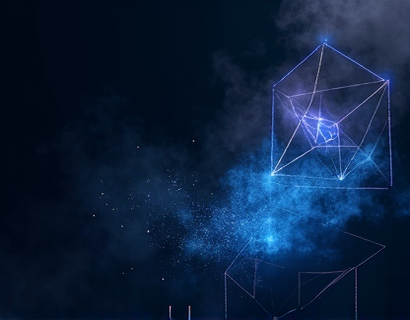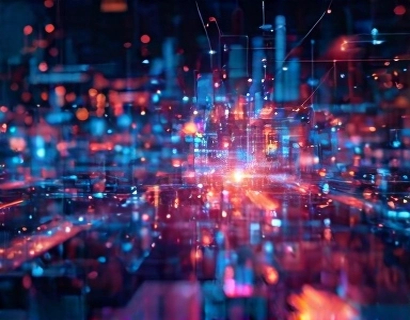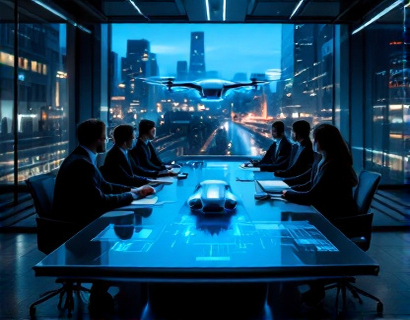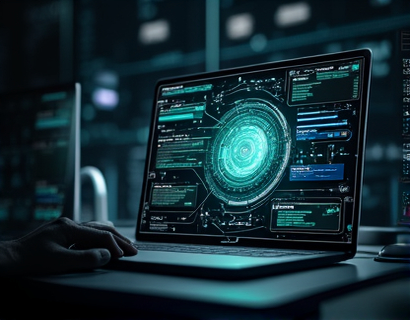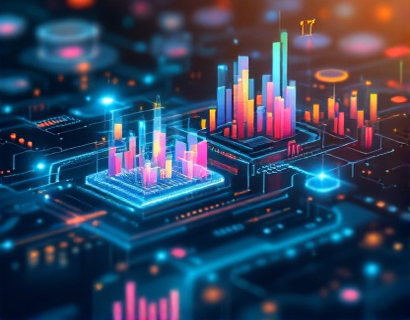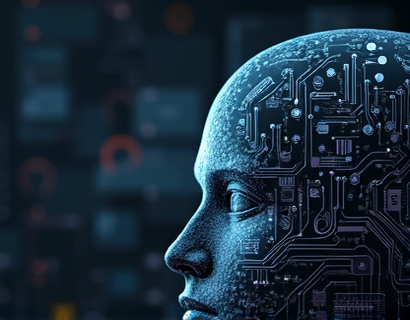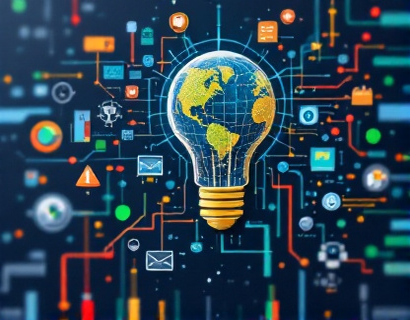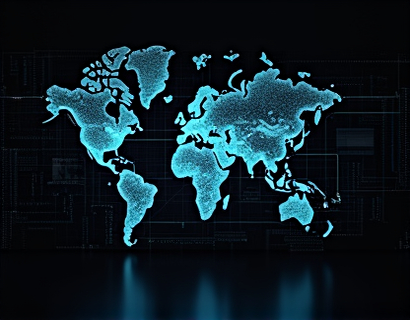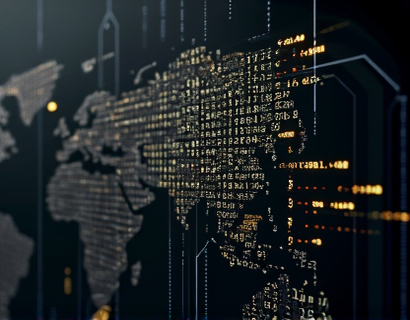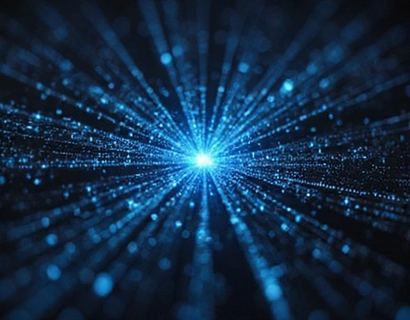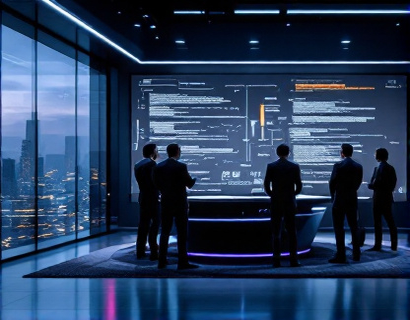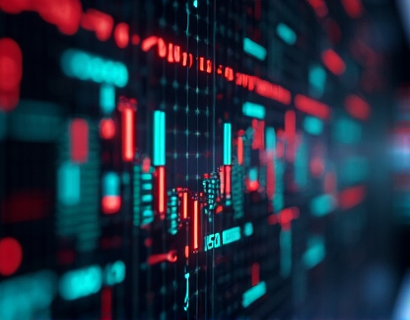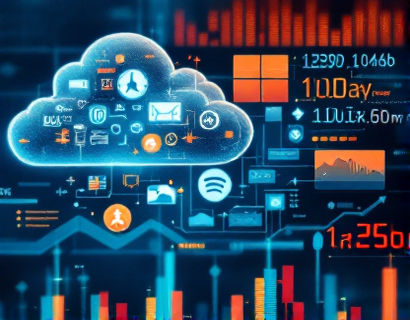Unleashing Next-Gen Productivity: The Synergy of AI and Crypto
The intersection of artificial intelligence and cryptocurrency is giving birth to a new era of digital innovation, one that promises to revolutionize how we manage tasks and enhance productivity. This fusion of technologies is not just a novel concept but a practical solution that is already transforming industries and redefining efficiency in the modern tech landscape. As we delve into this topic, it's essential to understand the foundational roles that AI and cryptocurrency play individually, and how their combination can lead to unprecedented advancements in task management and digital efficiency.
Understanding AI in Task Management
Artificial intelligence has been a game-changer in various sectors, and its application in task management is no exception. AI-driven tools can analyze vast amounts of data to identify patterns, predict outcomes, and automate repetitive tasks. This capability significantly reduces the time and effort required to complete mundane activities, allowing professionals to focus on higher-value tasks that require human creativity and critical thinking. For instance, AI can optimize scheduling by analyzing calendars, availability, and historical data to suggest the most efficient meeting times, minimizing conflicts and maximizing productivity.
Moreover, AI-powered virtual assistants can handle a wide range of tasks, from setting reminders and managing emails to conducting research and providing real-time insights. These assistants learn from user behavior and preferences, adapting to individual needs over time. This personalization ensures that the tools not only save time but also enhance the quality of work by providing relevant and timely information.
Cryptocurrency: A New Paradigm for Digital Transactions
Cryptocurrency, on the other hand, represents a shift from traditional financial systems to a decentralized, transparent, and secure method of conducting transactions. The underlying blockchain technology ensures that transactions are immutable and verifiable, reducing the risk of fraud and increasing trust in digital interactions. This trust is crucial for businesses and individuals who rely on seamless and secure transactions, especially in a globalized economy where cross-border payments can be complex and costly.
Beyond financial transactions, cryptocurrency can also serve as a medium for incentivizing tasks and rewarding productivity. For example, token-based systems can be implemented to motivate employees by offering cryptocurrency rewards for completing specific tasks or achieving certain milestones. This approach not only aligns individual goals with organizational objectives but also provides a transparent and fair system of recognition and compensation.
AI and Crypto: A Synergistic Force
The true power of combining AI and cryptocurrency lies in their complementary strengths. AI can enhance the functionality and usability of cryptocurrency-based platforms, while cryptocurrency can provide a secure and efficient means of transaction and incentive structures for AI-driven tasks. This synergy creates a robust ecosystem where digital innovations can thrive, leading to enhanced productivity and streamlined workflows.
One of the key applications of this combination is in the realm of smart contracts. Smart contracts are self-executing contracts with the terms of the agreement directly written into code. When integrated with AI, smart contracts can automatically trigger actions based on predefined conditions, such as completing a task or reaching a specific performance metric. This automation reduces the need for intermediaries, speeds up processes, and ensures that agreements are executed precisely as intended.
Enhanced Task Automation
AI-driven automation tools can significantly reduce the manual effort required to manage tasks. For example, AI can analyze project data to identify bottlenecks and suggest optimizations, such as reallocating resources or adjusting timelines. These tools can also predict potential issues before they arise, allowing for proactive problem-solving. By automating these processes, teams can operate more efficiently, with less friction and more focus on strategic initiatives.
Furthermore, AI can facilitate the creation of intelligent workflows that adapt to changing conditions in real-time. For instance, in a software development environment, AI can monitor the progress of tasks, prioritize them based on urgency and importance, and even suggest code optimizations. This level of automation not only speeds up development cycles but also improves the quality of the final product.
Secure and Transparent Incentives
The integration of cryptocurrency into AI-driven task management systems introduces a new dimension of incentives. By using cryptocurrency tokens, organizations can create a transparent and fair system for rewarding employees and contractors. These tokens can be earned through various mechanisms, such as completing tasks, contributing to the community, or achieving specific performance goals.
The use of blockchain ensures that all transactions are recorded and verifiable, eliminating the risk of fraud and ensuring accountability. This transparency builds trust among team members and stakeholders, fostering a collaborative and motivated work environment. Additionally, the decentralized nature of cryptocurrency reduces the dependency on central authorities, making the system more resilient and less prone to manipulation.
Case Studies and Real-World Applications
Several organizations are already leveraging the combination of AI and cryptocurrency to enhance productivity and task management. For instance, a tech company implemented an AI-powered project management tool that uses cryptocurrency tokens to incentivize team members for meeting deadlines and delivering high-quality work. The results were remarkable: project completion times decreased by 30%, and team satisfaction increased significantly due to the transparent and fair reward system.
Another example is a freelance platform that uses AI to match clients with the most suitable freelancers based on skill sets, availability, and past performance. The platform employs a token-based system where freelancers earn tokens for completing projects, which can be used to access premium services or redeemed for cash. This approach not only streamlines the matching process but also creates a self-sustaining ecosystem where both clients and freelancers benefit from the system's efficiency.
Future Prospects and Challenges
As the integration of AI and cryptocurrency continues to evolve, the potential for innovation is vast. One of the most exciting prospects is the development of decentralized autonomous organizations (DAOs), where AI and blockchain work together to manage and govern projects. In a DAO, AI can handle operational tasks, while blockchain ensures transparency and decentralized decision-making. This model has the potential to revolutionize how organizations operate, making them more agile, transparent, and resilient.
However, the path to widespread adoption is not without challenges. Regulatory uncertainties, technical complexities, and the need for widespread education and acceptance are significant hurdles. Organizations and developers must navigate these challenges carefully, ensuring that their solutions are compliant with existing regulations and user-friendly for a broad audience.
Conclusion
The convergence of AI and cryptocurrency is paving the way for a new era of digital productivity and task management. By leveraging the strengths of both technologies, we can create more efficient, secure, and transparent systems that enhance the way we work. As this field continues to evolve, it is crucial for tech innovators and early adopters to stay informed and embrace these advancements. The future of productivity is here, and it is powered by the seamless integration of artificial intelligence and cryptocurrency.



